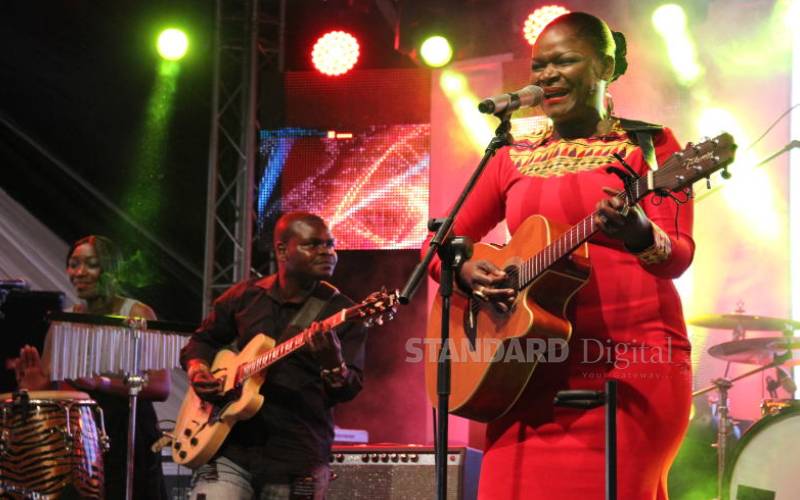×
The Standard e-Paper
Kenya’s Boldest Voice

Kenya secular artiste Susanna Owiyo perform on stage at a past Koroga festival. [File, Standard]
I have had a debate with some friends whether Kenya has more talent than Tanzania. They are adamant that Tanzania has better talent.







